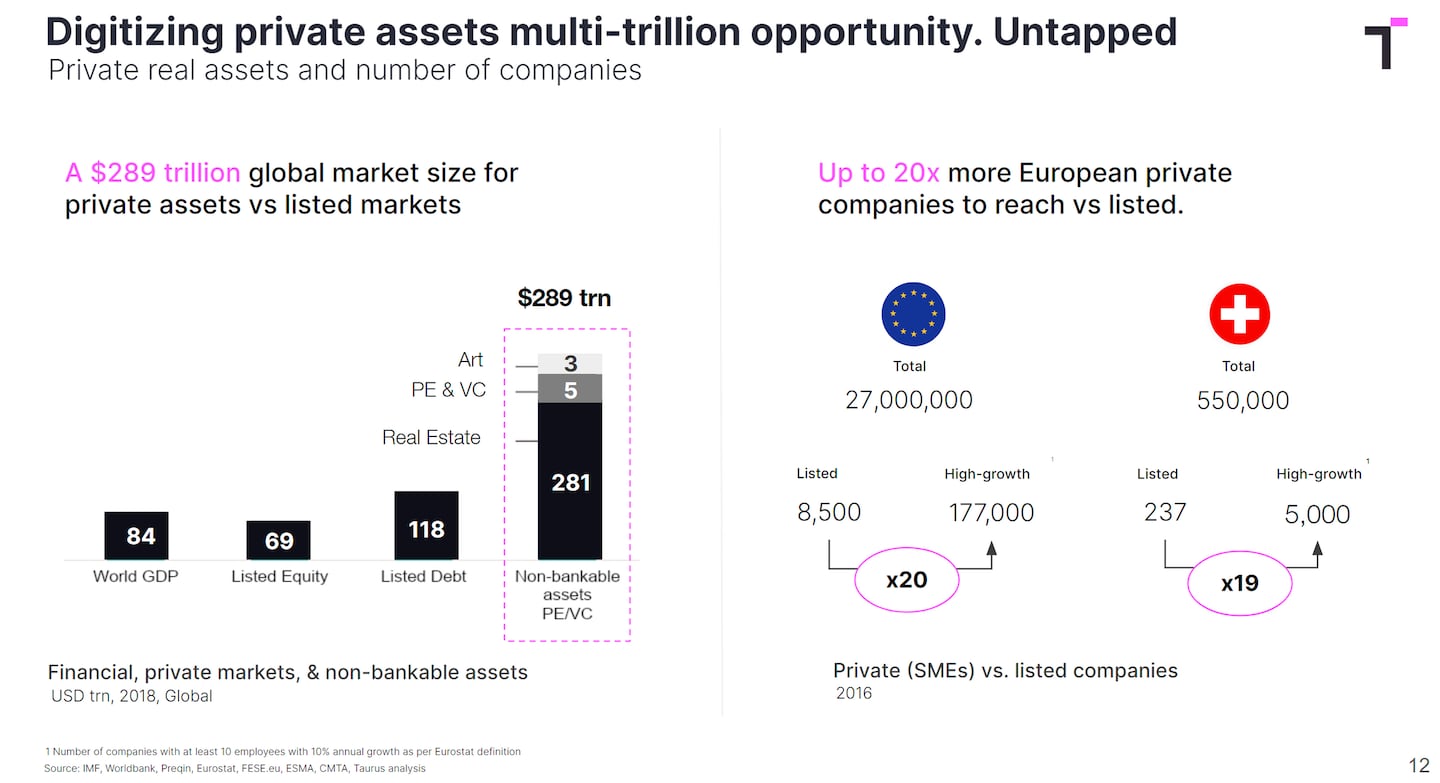BlackRock’s Larry Fink jumped into a growing trend among financial firms when he said he’s exploring how to tokenise stocks and bonds.
Fink’s announcement is momentous for the $249 trillion industry of listed equities and fixed-income assets. But a new report from Taurus, a digital assets infrastructure provider, found that an even bigger market looms — an estimated $289 trillion in private assets is available to move onto blockchains.
Taurus’ report suggests that private markets players stand to gain more than their public market counterparts from the tokenisation gold rush.
”Tokenisation could open worlds not imagined yet to private assets in a similar way to how the internet and e-commerce transformed many industries over the last two decades,” the report said.
Listed capital markets are already heavily electronic, whereas private equity, venture capital, real estate, and art are “mostly paper-based,” the report said, suggesting there are more opportunities in private markets than on listed ones.

Tokenisation, the process of putting real world assets on blockchains, has grown popular among asset managers while the rest of the crypto industry has been plagued by regulatory crackdowns and scandals.
Private equity firms Apollo Global Management, Hamilton Lane, KKR, and Partners Group have all jumped on the opportunity and launched tokenised funds on blockchains.
NOW READ: BlackRock CEO Larry Fink softens crypto stance further with ‘tokenisation’ push
Such firms could leverage tokenisation to tap the individual investors who hold roughly 50% of the estimated $275 trillion of global assets under management, according to a report by Bain & Company. Those same investors represent just 16% of AUM held by alternative investment funds.
The firms could also woo investors looking for higher returns. Returns in private equity have outpaced those of global stock markets for years, with annual returns of 14% and 7% respectively, according to Bain & Company.
Tokenisation can also enable fractional ownership where multiple investors own a share of the same asset,which could increase liquidity and reduce investors’ lock-up periods in private market investments, Taurus says.
NOW READ: DeFi ‘threat’ drives $1.5B tokenisation boom as Goldman, SocGen eye on-chain bonds
“Private funds are very restricted in terms of liquidity options, and by natively issuing shares on chain, they can then open up marketplaces to give investors the opportunity to exit,” Morgan McKenney, CEO of the Provenance Blockchain Foundation, told DL News.
Private equity firms, moreover, can benefit from the US Securities and Exchange Commission recently easing the rules governing who can invest in private securities.
